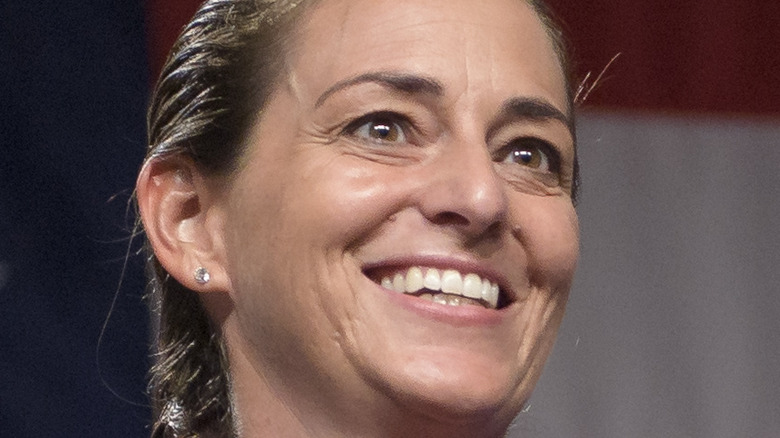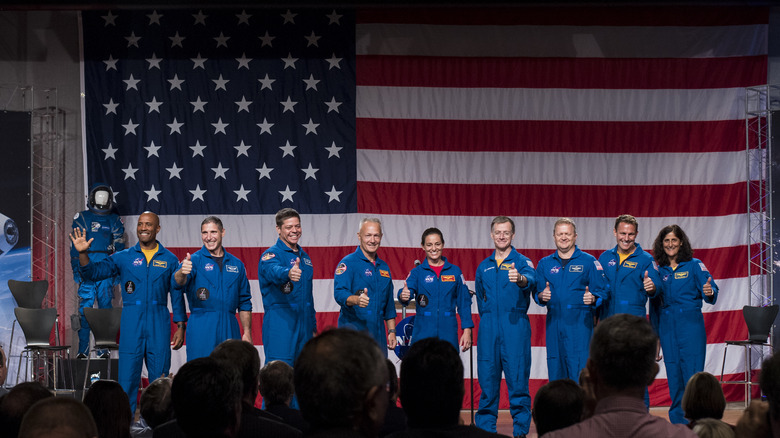Meet Nicole Aunapu Mann, The First Indigenous Woman To Go To Space
It's been over half a century since the National Aeronautics and Space Administration, aka NASA, launched in 1958. For decades, we've celebrated numerous achievements that the government agency has accomplished — like the historic 1969 spaceflight, which fulfilled the mission of landing the first man on the moon. However, there would be a giant elephant in the room if we didn't discuss a perspective on how the space agency didn't prioritize women astronauts. A 2019 Wired article reported on how NASA was mainly made with men in mind, and the evidence is startling. In fact, NASA didn't send a woman to space until 1983, decades after the agency's inception (via History).
It's important to note, though, that NASA has made significant strides in how their astronauts are reflected demographically. National Geographic reported that the first astronauts were mostly white men with military experience, but, by 2017, "The Turtles" — the moniker of NASA's Group 22 — had a healthy balance and diverse population of both men and women astronauts. Native representation, on the other hand, has been few and far between.
That isn't only the case at NASA and in other STEM-related jobs; who could forget the 1973 Oscars moment where the audience booed Sacheen Littlefeather for accepting Marlon Brando's award? Decades later, people in power are finally listening and making sure Native stories are shared far and wide. Take Hulu's show "Reservation Dogs" — a first of its kind, depicting life on a reservation. Sarah Podemski, one of the show's stars, opened up about the importance of Indigenous stories.
Now, a NASA astronaut is making the Native community proud.
NASA Astronaut Nicole Aunapu Mann is here to break barriers
This fall, NASA will launch a crew of astronauts into space for its Crew-5 mission as they head to the International Space Station. The mission commander is Astronaut Nicole Aunapu Mann — the first Native woman to go to space, and hopefully one day the moon (via Indian Country Day).
According to NASA, this will be Mann's first spaceflight, and she's speaking to the importance of representing the Native community during this launch.
"I think it's important that we communicate this to our community, so that other Native kids, if they thought maybe that this was not a possibility or to realize that some of those barriers that used to be there are really starting to get broken down," she told ICT.
A Colonel in the Marine Corps, Mann is Wailacki of the Round Valley Indian Tribes in northern California. But Mann isn't done attempting to make history and inspiring indigenous folks everywhere anytime soon; NASA also announced that for their Artemis mission, Mann could be selected to potentially go to the moon — which would make her the first woman to do so.
In a 2021 interview with Inverse, Mann commented on the complicated feelings she has surrounding being a "first." "Yes, you want to be the first person to walk on the Moon, you want to fulfill that role, but really it's not about you. It's about the bigger mission, so you're just excited to support in whatever role you can."

